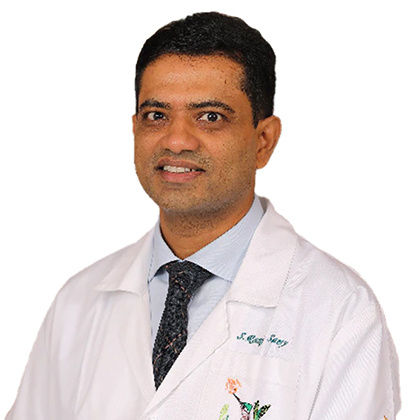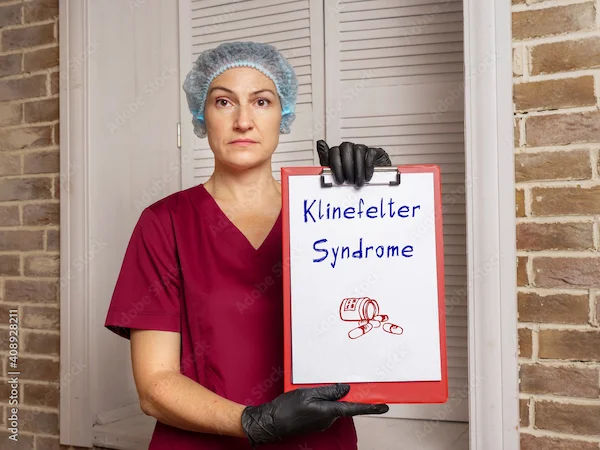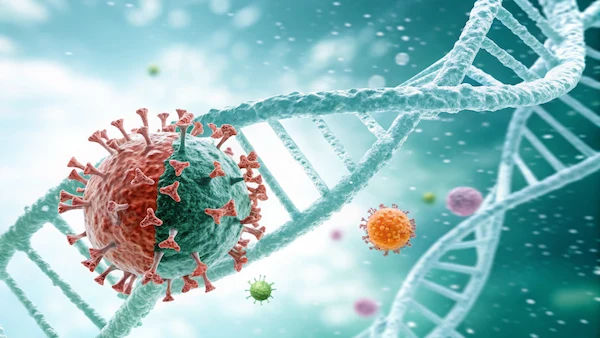Genetic Testing Using Non-Invasive Prenatal Screening
Know what genetic testing is while using non-invasive prenatal screening, what it does, who should get it done, benefits of the test, limitations of the test and what the results indicate.

Written by Dr. Rohinipriyanka Pondugula
Reviewed by Dr. Shaik Abdul Kalam MD (Physician)
Last updated on 28th Aug, 2025

Introduction
Pregnancy is a beautiful and exciting journey, but it can also bring concerns about the baby’s health. Thanks to modern medical advancements, expecting parents now have access to safe and effective ways to check for potential genetic conditions early in pregnancy. One such method is Non-Invasive Prenatal Screening (NIPS), a simple blood test that helps assess the risk of certain genetic disorders in the baby without harming the mother or the fetus.
In this article, we’ll explain what NIPS is, how it works, who should consider it, and what you can expect from the results.
What is Non-Invasive Prenatal Screening (NIPS)?
NIPS is a safe and highly accurate blood test that screens for genetic abnormalities in the baby as early as 10 weeks into pregnancy. Unlike invasive tests like amniocentesis or chorionic villus sampling (CVS), which carry a small risk of miscarriage, NIPS only requires a blood sample from the mother.
The test analyses tiny fragments of the baby’s DNA (called cell-free DNA) that circulate in the mother’s bloodstream.
By examining this DNA, doctors can detect certain chromosomal conditions, such as:
- Down syndrome (Trisomy 21)
- Edwards syndrome (Trisomy 18)
- Patau syndrome (Trisomy 13)
- Sex chromosome abnormalities (e.g., Turner syndrome, Klinefelter syndrome)
NIPS can also determine the baby’s gender (sex chromosomes) with high accuracy.
Consult a Gynaecologist for Personalised Advice
Who Should Consider NIPS?
NIPS is recommended for pregnant women who:
- Are 35 years or older (advanced maternal age increases genetic risks).
- Have had a previous pregnancy with a chromosomal abnormality.
- Have abnormal ultrasound findings suggesting a genetic condition.
- Have a family history of genetic disorders.
- Want early and accurate screening without invasive procedures.
However, NIPS is optional and available to any expectant mother who wishes to have more information about their
baby’s health.
How is NIPS Done?
The process is simple, painless, and safe:
- A blood sample is taken from the mother’s arm (just like a regular blood test).
- The sample is sent to a lab, where advanced technology examines the baby’s DNA.
- Results are usually available in 7–10 days.
Since NIPS is non-invasive, there is no risk to the baby or mother.
What Do the Results Mean?
NIPS provides a risk assessment, not a definitive diagnosis. The results will indicate whether the baby has a higher or
lower chance of having certain genetic conditions.
- Low-risk result → The likelihood of the tested conditions is very low.
- High-risk result → Further diagnostic tests (like amniocentesis) may be recommended for confirmation.
It’s important to discuss the results with your doctor to understand what they mean for your pregnancy.
Benefits of NIPS
It includes:
- Highly accurate (over 99% for detecting Down syndrome).
- No risk of miscarriage (unlike invasive tests).
- Early detection (as early as 10 weeks).
- Can also reveal baby’s gender (if parents wish to know).
Limitations of NIPS
While NIPS is a powerful tool, it has some limitations:
- Does not test for all genetic conditions (only screens for specific chromosomal abnormalities).
- Cannot detect structural birth defects (like heart or spine issues).
- False positives/negatives are rare but possible (further testing may be needed).
Tips for Expecting Parents Considering NIPS
The tips include:
- Talk to your doctor – Discuss whether NIPS is right for you.
- Understand the purpose – It’s a screening test, not a diagnostic one.
- Be prepared for results – Know what steps to take if results indicate a higher risk.
- Consider genetic counselling – Helps in understanding risks and options.
Final Thoughts
Non-Invasive Prenatal Screening (NIPS) is a safe, reliable, and early way to check for genetic conditions in your baby. While it doesn’t replace diagnostic tests, it provides valuable information to help you make informed decisions about your pregnancy.
3cf5720d-7c8f-4a3f-b0ba-2fb1a0c83eae
Consult a Gynaecologist for Personalised Advice

Dr. Amit Choraria
Surgical Oncologist
18 Years • MBBS, MS (Surgery) Fellow, Surgical Oncology, Tata Medical Center (FSO) Fellow, European Board of Surgery (Surgical Oncology) (FEBS) Fellow, Minimal Access Surgery (FMAS) Fellow, Indian Association of Gastrointestinal Endosurgeons (FIAGES) UICC Fellow, Royal Marsden NHS, London, UK Visiting Scholar, Plastic Reconstructive Surgery, CGMH, Taiwan Fellow, Robotic Surgical Oncology, Vattikuti Foundation, USA
Kolkata
Apollo Multispeciality Hospitals , Kolkata, Kolkata
(50+ Patients)

Dr. Rupam Manna
Radiation Specialist Oncologist
4 Years • MBBS MD(RADIO THERAPY)
Barasat
Diab-Eat-Ease, Barasat

Dr. Sushith C
General Physician
2 Years • MBBS
Bengaluru
PRESTIGE SHANTHINIKETAN - SOCIETY CLINIC, Bengaluru

Dr. Sreeparna Roy
Obstetrician and Gynaecologist
8 Years • MBBS , MS (OBSTETRICS & GYNAECOLOGY), Fellowship in Infertility, Endoscopy & Ultrasonography), Fellowship in Laparoscopy & Hysteroscopy,DRM
Kolkata
Dr Utsa Basu Clinic, Kolkata

Dr. Kumar Gubbala
Gynaecological Oncologist
7 Years • MBBS, MRCOG
Chennai
Apollo Proton Cancer Center, Chennai
(25+ Patients)
Consult a Gynaecologist for Personalised Advice

Dr. Amit Choraria
Surgical Oncologist
18 Years • MBBS, MS (Surgery) Fellow, Surgical Oncology, Tata Medical Center (FSO) Fellow, European Board of Surgery (Surgical Oncology) (FEBS) Fellow, Minimal Access Surgery (FMAS) Fellow, Indian Association of Gastrointestinal Endosurgeons (FIAGES) UICC Fellow, Royal Marsden NHS, London, UK Visiting Scholar, Plastic Reconstructive Surgery, CGMH, Taiwan Fellow, Robotic Surgical Oncology, Vattikuti Foundation, USA
Kolkata
Apollo Multispeciality Hospitals , Kolkata, Kolkata
(50+ Patients)

Dr. Rupam Manna
Radiation Specialist Oncologist
4 Years • MBBS MD(RADIO THERAPY)
Barasat
Diab-Eat-Ease, Barasat

Dr. Sushith C
General Physician
2 Years • MBBS
Bengaluru
PRESTIGE SHANTHINIKETAN - SOCIETY CLINIC, Bengaluru

Dr. Sreeparna Roy
Obstetrician and Gynaecologist
8 Years • MBBS , MS (OBSTETRICS & GYNAECOLOGY), Fellowship in Infertility, Endoscopy & Ultrasonography), Fellowship in Laparoscopy & Hysteroscopy,DRM
Kolkata
Dr Utsa Basu Clinic, Kolkata

Dr. Kumar Gubbala
Gynaecological Oncologist
7 Years • MBBS, MRCOG
Chennai
Apollo Proton Cancer Center, Chennai
(25+ Patients)




